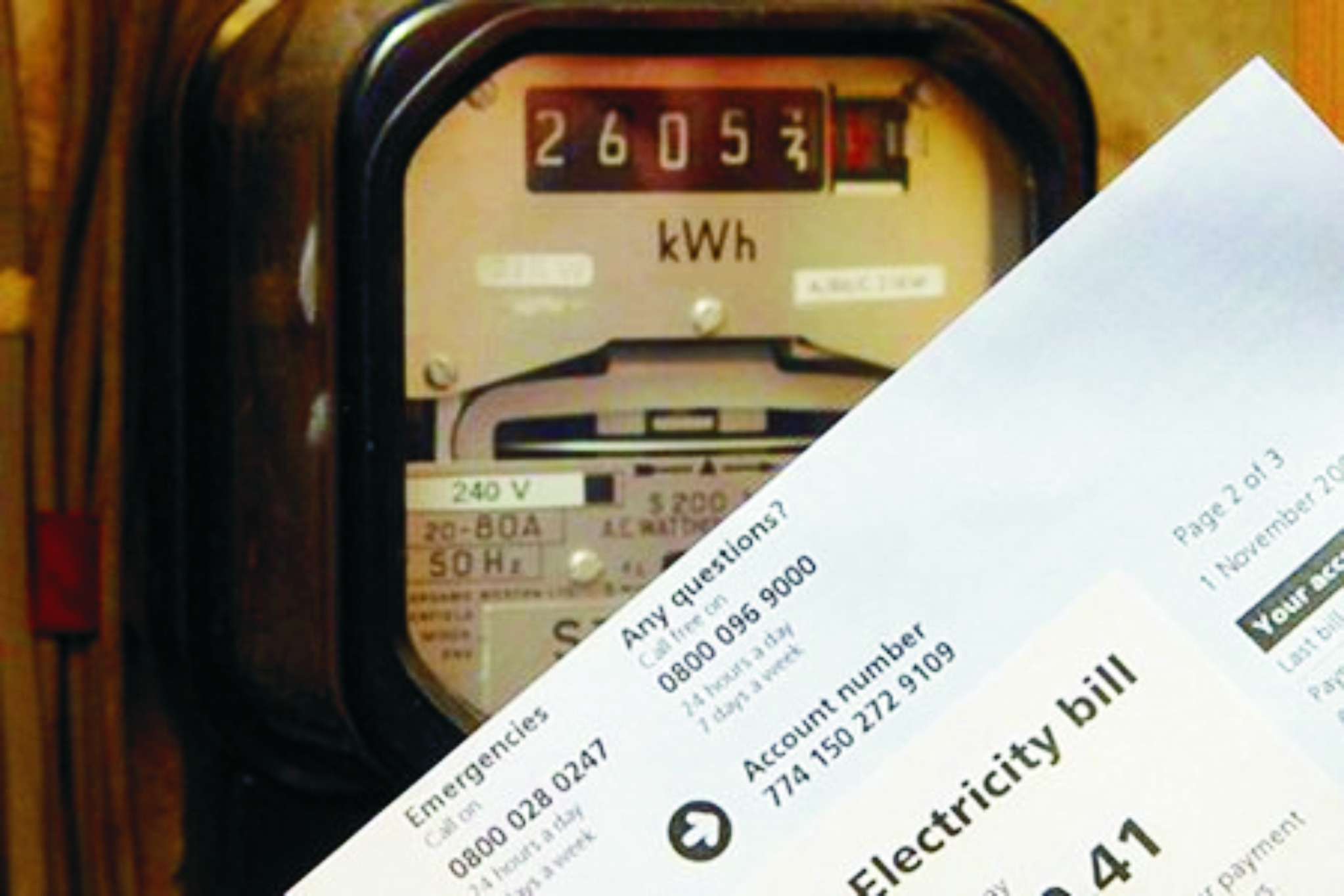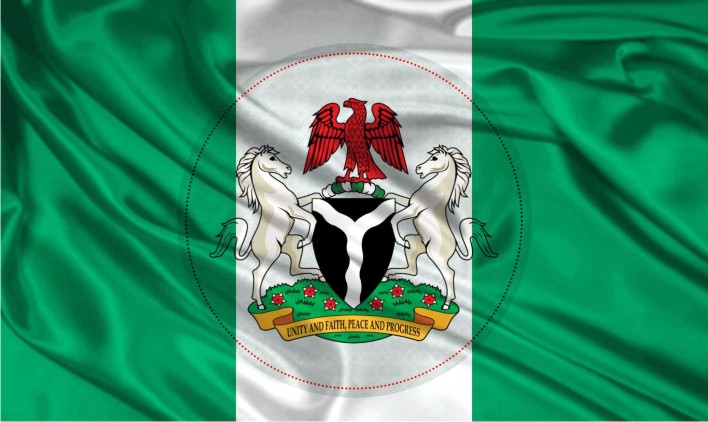Featured
Electricity Customers Jump To 10.37m

The National Bureau of Statistics (NBS) has said the Electricity Distribution Companies (DisCos) customers’ numbers in Nigeria increased from 6.99million in 2015 to 10.37million in 2020.
This is according to the NBS Electricity Report 2015-2020 released in Abuja, yesterday.
The report focuses on customers numbers, metered customers, estimated billing customers, and most importantly, electricity supply and revenue collected under the reviewed period.
It said the number of customers under the reviewed period (2015-2020) increased successively on a year-on-year basis, with the highest numbers recorded in Ibadan Electricity Distribution Company (IBEDC).
“Generally, the DisCos customers’ numbers in Nigeria increased consecutively over the last six years. In 2015, 6.99million customers were recorded, and the figure rose to 7.35million in the succeeding year.
“This increased further to 7.95million customers in 2017, showing a growth rate of 8.14per cent.
“While the trend continued, 2018 and 2019 recorded 8.63million and 9.55million customers respectively, accounting for an 8.60per cent growth rate in 2018 and a 10.71per cent growth rate in 2019.”
Subsequently, customer numbers in 2020 stood at 10.37million, higher by 8.49per cent relative to 2019.
Similarly, the report showed that the number of metered customers increased consecutively on a year-on-year basis from 3.15million in 2015 to 3.80million in 2019 but declined to 3.51million in 2020.
The report said in 2015, Benin Electricity Distribution Company (BEDC) recorded the highest number of metered customers, while IBEDC stood top between 2016 and 2019.
According to the report, Abuja Electricity Distribution Company (AEDC) recorded the highest number of metered customers in 2020.
“AEDC recorded 693,622 customers, followed by IBEDC with 671,035, while Yola Electricity Distribution Company (YEDC) recorded the least with 71,867.”
The report said the estimated billing customers’ records also showed a year-on-year positive growth rate consecutively from 3.85million in 2015 to 6.86million in 2020.
It said in 2020, the customers’ numbers were highest in IBEDC with 1,282,136, followed by IEDC and Enugu Electricity Distribution Company (EEDC) with 1,121,722 and 762,311, respectively.
It, however, said Eko Distribution Company (EKEDC) recorded the least with 269,022.
The report showed that electricity supplied to customers under the period of review (2015-2020) showed an unstable trajectory.
“In 2015, 20,337.40Gigawatt hours (GWh) were supplied across Nigeria. This fell by 6.36per cent in 2016 when 19,044.30GWh were supplied.
“Also, it rose in 2017 by 2.04 per cent with 19,432.39GWh and further rose in 2018 by 10.55per cent with 21,483.25GWh.
“In total, electricity supplied in 2019 stood at 22,450.67GWh but declined in 2020 by 1.82per cent when 22,042.28GWh were supplied.”
The report said IEDC recorded the highest electricity supplied in 2020 with 4,158.87GWh, followed by EKEDC and IBEDC with 3,097.87GWh and 2,841.08GWh, respectively.
AEDC ranked fourth with 2,388.00GWh, while YEDC recorded the least with 557.00GWh.
The report revealed that revenue generated by the DisCos in 2015 stood at N278,892.01million and rose to N303,029.57million in 2016, showing an 8.65per cent growth rate.
“While in In 2017, revenue had increased by 22.25per cent when N370,455.82million was received. Furthermore, collections rose by 19.48per cent in 2018, recording N442,630.09million.
“In addition, this increased by 9.03per cent in 2019 when N482,610.35million was collected. In 2020, positive growth was recorded with 9.15per cent when N526,769.33million was collected compared to the previous year.”
The report said the highest revenue collected in 2020 was by IEDC with N102,100.09million, followed by EKEDC with N81,387.10million.
The least collection was recorded in YEDC with N10,641.00million.
Featured
FG To Seize Retirees’ Property Over Unpaid Housing Loans

The Federal Government Staff Housing Loans Board says it has begun the compilation of list of retired civil servants who have defaulted on the full repayment of housing loans obtained.
Head of Information and Public Relations, FGSHLB, Mrs Ngozi Obiechina, disclosed this in a statement in Abuja, yesterday.
Obiechina quoted the Executive Secretary of the Board, Mrs Salamatu Ahmed, as saying that the move was aimed at recovering mortgaged properties from retirees who failed to meet their loan obligations.
Ahmed noted that the decision followed a recent memo issued by Mrs Patience Oyekunle, Permanent Secretary, Career Management Office, Office of the Head of the Civil Service of the Federation.
According to her, the memo reminded public servants of the mandatory requirement to obtain a Certificate of Non-Indebtedness to the FGSHLB and MDA Staff Multipurpose Cooperative Society as a precondition for retirement.
The Executive Secretary said that the board would take necessary legal steps to repossess properties where applicable, in line with the terms of the loan agreements.
She said this was in line with the provisions of the Public Service Rules 021002 (p), issued by the Office of the Head of the Civil Service of the Federation.
“I am directed to bring to your attention the provision of Public Service Rule (PSR) 021002 (p), which mandates all public servants to obtain a Certificate of Non-Indebtedness as a prerequisite for retirement.
“The Federal Government will commence the seizure of mortgaged properties belonging to retiring federal public servants who have failed to fully repay housing loans obtained from the board,” she said.
Ahmed explained that the FGSHLB reserves the legal right to repossess any mortgaged property in cases where a public servant exits service without fully repaying the loan.
She reiterated that the directive also applied to already retired officers who were still indebted.
She urged all affected public servants to regularise their loan status and obtain the required clearance certificate without delay.
“The board is currently compiling a list of such retirees, which will be forwarded to relevant regulatory agencies for debt recovery.
“The FGSHLB remains committed to enforcing compliance and ensuring proper loan recovery procedures are followed, “ she added.
Featured
FG Begins Induction For New Permanent Secretaries, Accountant-General

The Federal Government has kicked off a three-day induction programme for newly appointed Permanent Secretaries and the Accountant-General of the Federation, aimed at equipping them for strategic leadership and effective policy implementation.
The induction, according to a statement yesterday by the Director, Information and Public Relations, Federal Ministry of Information and National Orientation, Eno Olotu, which commenced on Wednesday, is being held at the National Counter Terrorism Centre in Abuja.
Speaking at the opening session, the Head of the Civil Service of the Federation, Mrs. Didi Esther Walson-Jack, congratulated the new appointees and described their roles as pivotal to governance and national development.
“Permanent Secretaries are the engine room of the government. They are critical to driving policy implementation, institutional performance, and reform across the service”, she said.
The Federal Government has kicked off a three-day induction programme for newly appointed Permanent Secretaries and the Accountant-General of the Federation, aimed at equipping them for strategic leadership and effective policy implementation.
The induction, according to a statement yesterday by the Director, Information and Public Relations, Federal Ministry of Information and National Orientation, Eno Olotu, which commenced on Wednesday, is being held at the National Counter Terrorism Centre in Abuja.
Speaking at the opening session, the Head of the Civil Service of the Federation, Mrs. Didi Esther Walson-Jack, congratulated the new appointees and described their roles as pivotal to governance and national development.
“Permanent Secretaries are the engine room of the government. They are critical to driving policy implementation, institutional performance, and reform across the service”, she said.
“The expectations are high, and the responsibility is immense. But with commitment and teamwork, we can deliver a more efficient, accountable, and citizen-centred public service.
“This final lap of FCSSIP 25 calls for urgency, accountability, and strategic focus. You must translate vision into measurable results,” she stated.
In her welcome address, the Permanent Secretary, Career Management Office, Mrs. Fatima Sugra Tabi’a Mahmood, described the programme as a strategic investment in leadership capacity and institutional effectiveness.
The sessions featured expert-led discussions, simulations, and strategic briefings facilitated by a distinguished faculty, including Engr. Suleiman Adamu, former Minister of Water Resources; Dr. Hadiza Bala Usman, Special Adviser to the President on Policy and Coordination; Mrs. Beatrice Jedy-Agba, Solicitor-General of the Federation and Permanent Secretary, Federal Ministry of Justice; Alh. Yusuf Addy, retired Federal Director; Alhaji Bukar Goni Aji, former Head of the Civil Service of the Federation; Amb. Mustapha Lawal Suleiman, Mr. Adesola Olusade, and Dr. Ifeoma Anagbogu, all retired Permanent Secretaries.
Participants include Dr. Obi Emeka Vitalis, Mrs. Fatima Sugra Tabi’a Mahmood, Mr. Danjuma Mohammed Sanusi, Mr. Olusanya Olubunmi, Dr. Keshinro Maryam Ismaila, Dr. Akujobi Chinyere Ijeoma, Dr. Umobong Emanso Okop, Dr. Isokpunwu Christopher Osaruwanmwen, Mrs. Oyekunle N. Patience, Dr. Kalba U. Danjuma, Mr. Nadungu Gagare, Mr. Onwusoro I. Maduka, Dr. Usman Salihu Aminu, Mr. Ogbodo Chinasa Nnam, Mr. Ndiomu Ebiogeh Philip, Dr. Anuma N. Ogbonnaya, Mr. Adeladan Rafiu Olaninre, and Mr. Mukhtar Yawale Muhammed, alongside the Accountant-General of the Federation, Mr. Shamseldeen Babatunde Ogunjimi.
The induction programme will feature sessions on public sector leadership, policy delivery, ethics in service, digital transformation, and performance management.
Featured
NNPCL To Undergo Forensic Audit Soon -FG

The Minister of Finance and Coordinating Minister of the Economy, Wale Edun, has announced that a forensic audit of the Nigerian National Petroleum Company Limited (NNPCL) will begin soon.
Edun revealed this at the ongoing Nigerian Investor Forum, held alongside the IMF/World Bank Spring Meetings in Washington DC.
The minister explained that the recent changes in the NNPCL management are part of a broader effort by the Federal Government to clean up and examine the company closely.
While addressing top global investors, including representatives from J.P. Morgan, Edun shared key reforms the government has introduced to revive the economy and restore investor confidence.
He told the investors that the government’s bold economic steps have laid a strong foundation to attract private investment.
He stated, “Our goal is not just to maintain this momentum, but to accelerate it. We are targeting seven per cent annual growth, and we believe the policies we have implemented have laid the groundwork to achieve this.”
Edun highlighted that President Bola Tinubu’s administration has rolled out major reforms that are already making a difference.
He added that the Nigerian economy grew by 3.84 per cent in the fourth quarter of 2024 and recorded a 3.4 per cent growth for the year.
Edun further stressed the importance of the reforms, describing them as “unprecedented,” adding that, “We said we would do it, and now we have done it. This time, we’re staying the course.”
He pointed out signs of progress such as lower budget deficits, a better trade balance, and a more stable exchange rate.
He also said that the focus is now on growing key sectors, especially agriculture.
According to Edun, agriculture is at the top of the government’s agenda, with the aim of improving food supply and increasing productivity.
“We aim to close the food supply gap, not by importing more, but by enabling domestic producers to scale and innovate,” he said.
On infrastructure, Edun revealed that the government has rolled out 90,000km of fibre optic cable to improve internet access.
He said this move is crucial for supporting young Nigerians and tech startups.
He also noted that 4,000km of roads have been offered for private sector participation, with the first 1,000km already approved for construction.
-
News5 days ago
Nigeria Safe For Investment, Edun Assures Investors
-

 Featured5 days ago
Featured5 days agoFG Begins Induction For New Permanent Secretaries, Accountant-General
-
Rivers5 days ago
Rivers Judiciary Denies Reports On SOLAD’s Sack
-
Opinion5 days ago
Periscoping The Tax Reform Bills (1)
-
Politics5 days ago
Gov Bago Succumbs, Invites Persons With Dreadlocks
-
Business5 days ago
USTR Criticises Nigeria’s Import Ban On Agriculture, Others
-

 Niger Delta5 days ago
Niger Delta5 days agoDELSU Spends N720m On Electricity Annually -VC
-
Rivers5 days ago
Perm Sec Tasks NUJ Leadership On Unity





